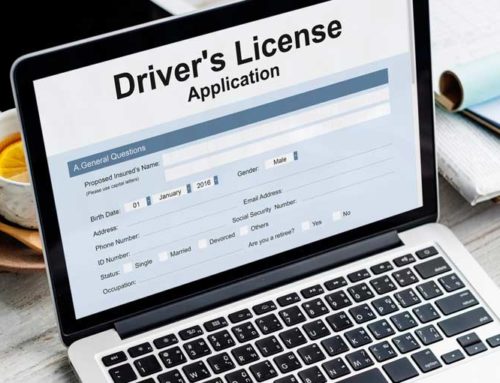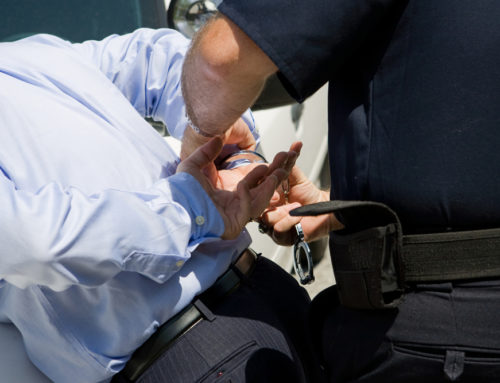Remaining silent may be used against you in court?
In the United States, silence has often been seen as golden. The Fifth Amendment protects a person’s right against providing incriminating statements. However, the Supreme Court’s ruling in Salinas v. Texas limits the effectiveness of remaining silent in certain situations. Now, refusing to answer an officer’s question may be used as an admission of guilt during trial. However, while the Court in Salinas was limiting the reach of the Fifth Amendment right to remain silent in the context of police questioning, the Fourth Circuit Court of Appeals was fortifying the right to remain silent in the context of police searches.
Case:
Salinas v. Texas, 133 S.Ct. 2174 (2013)
Issue:
In Salinas v. Texas, the issue was whether Mr. Salinas’ silence on one question during non-custodial police questioning could be used as evidence of his guilt at trial, where Mr. Salinas voluntarily answered other police questions and never specifically invoked his right to remain silent.
Facts:
Without being placed in custody or read his Miranda rights, Mr. Salinas voluntarily answered an officer’s questions for approximately one hour about his wife’s murder. When officers asked Mr. Salinas whether a ballistics test would show that the shell casings found at the scene would match his gun, Mr. Salinas did not answer. Instead, he “looked down at the floor, shuffled his feet, bit his bottom lip, clenched his hands in his lap, and began to tighten up.” Mr. Salinas was ultimately criminally charged with his wife’s murder. During the trial, prosecutors argued that Mr. Salinas’ reaction to the question about the shell casings suggested that he was guilty. Mr. Salinas objected at trial on the grounds that the prosecutor’s argument violated his Fifth Amendment right to remain silent. The Texas Court of Criminal Appeals rejected Mr. Salinas’ argument.
Holding:
The Supreme Court held that Mr. Salinas’ Fifth Amendment argument failed, “because he did not expressly invoke the privilege against self-incrimination in response to the officer’s question.” The Court further held that the privilege against self-incrimination, “generally is not self-executing and that a witness who desires its protection must claim it.” The Court reasoned that “simply standing mute” is not sufficient to invoke the privilege.
“The privilege against self-incrimination is an exception to the general principle that the government has the right to everyone’s testimony.” Citing Garner v. United States, 424 U.S. 648, 658, n. 11, 96 S.Ct. 1178, 47 L.Ed.2d 370 (1976). However, a suspect must claim the right before he can use it. The Court reasoned that a person must invoke the privilege because it puts the Government on notice. The government can then either attempt to secure the testimony through a grant of immunity or argue that the testimony could not be self-incriminating. The Supreme Court also stated that invoking the right creates a record establishing a witness’ reasons for refusing to answer.
The Court does recognize two exceptions to the rule that a person must invoke the right to remain silent. The first exception is that a criminal suspect does not need to invoke the right to remain silent at trial. A criminal suspect can’t be compelled to testify at trial. The second exception occurs where government coercion makes the forfeiture of the privilege involuntary. The Court recognizes that custodial interrogation is uniquely coercive in nature and a person, “can’t be said to have voluntarily foregone the privilege unless he fails to claim it after being suitably warned.” Citing Murphy, supra, at 429-430, 104 S.Ct. 1136.
The holding in Salinas has far reaching implications in criminal cases. This ruling puts the onus on criminal suspects to proactively protect themselves. A criminal suspect must be clear that they are invoking their right to remain silent and can’t just sit idly by. While the decision in Salinas diminishes the range of protection for the right to remain silent during police questioning, the Fourth Circuit Court of Appeals decision in United States v. Robertson bolsters the protections of the right to remain silent in the context of search and seizure.
Begrudging submission to a command not the same as voluntary consent in a criminal investigation
Case:
United States v. Robertson (2013)
Issue:
Does a criminal suspect give voluntary consent to search his person by remaining silent but complying with an officer’s request to come towards him and put his hands up.
Facts:
Officer Welch came to a bus shelter while responding to a foot chase with a weapon present. The Officer began engaging the people at the bus shelter. The Officer came to Jamaal Robertson who was standing in a corner at the station. Robertson had walls all around him and the only way out was straight ahead where the Officer was standing. The Officer asked Robertson if he had anything illegal on him at the same time that he waived for Robertson to come towards him. Robertson remained silent but complied with the Officer’s request to come towards him. Robertson put his arms up and turned around. The Officer searched Robertson and found a firearm in his possession. Robertson was arrested and criminally charged with illegal firearm possession. Robertson sought to suppress the evidence of the Officer’s search at trial arguing that he did not consent to the search. The District Court denied his motion.
Holding:
The Fourth Circuit Court of Appeals held that Robertson did not consent to the search, but that his actions instead were a “begrudging submission to a command.” An officer doesn’t have to establish probable cause if a criminal suspect consents to a search. The government has the burden of proving consent to search. When considering whether consent was given, the Court looks at “the officer’s conduct, the number of officers present, the time of the encounter, and characteristics of the individual who was searched, such as age and education.” “Whether the individual searched was informed of his right to decline the search is a ‘highly relevant’ factor.”
Here Robertson chose to remain silent. The Officer was blocking Robertson’s path, so Robertson had the choice of resisting arrest or complying with the Officer’s request. The Court found that this meant that Robertson was not free to leave. Ultimately, the Court found that Robertson did not consent to the search but instead exhibited a “begrudging submission to a command.”
Contact a criminal defense attorney at Pisarik Law Firm to discuss your criminal defense
If you have been charged with a crime, contact a criminal defense attorney at Pisarik Law Firm today to discuss your criminal defense. Just because you have been charged with a crime, does not mean that you are guilty. 803-415-2733






